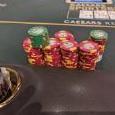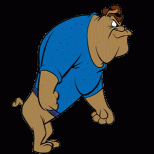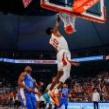All Activity
- Past hour
-
LamarCard2011 joined the community
-
 baddog reacted to a post in a topic:
Trump makes unproven link between autism and Tylenol
baddog reacted to a post in a topic:
Trump makes unproven link between autism and Tylenol
-
Trump makes unproven link between autism and Tylenol
bullets13 replied to thetragichippy's topic in Political Forum
I personally don't believe that Tylenol causes autism, but could see it being one of a set of factors that may cause it. I think you can make an easy connection between things that a lot of people do (many, many pregnant women take aspirin) to just about anything. I could make a convincing argument that drinking water while you're pregnant increases the chances of having an autistic child, because 100% of the mothers of autistic children drank water while they were pregnant. Having worked with autistic children for the last several years, I tend to think that there are many, many factors that likely lead to a child being born autistic. I 1000% percent agree with AAW that it is much better diagnosed today than it was in the past. Most cases of autism when I was a kid were just kids who were "weird" or "different." I also agree with 5GB that there are more cases today as well. A lot is still not known about what causes autism, but there is one factor that has been definitively proven to increase the odds of having an autistic child, and that is the age of the parents. Older parents are much more likely to give birth to an autistic child. A woman in her 30s is twice as likely to have an autistic child than a woman in her 20s. A woman in her 40s is five times as likely to give birth to an autistic child than a woman in her 20s. Just in the last generation or two there's been a big increase in couples waiting well into their 30s and even 40s to start families. Without a doubt that explains (some) of the increase in autism. And I'm sure there are other environmental and dietary factors as well that are not understood yet. -
 Mr. Buddy Garrity reacted to a post in a topic:
Woodville’s Babin commits
Mr. Buddy Garrity reacted to a post in a topic:
Woodville’s Babin commits
-
 TxHoops reacted to a post in a topic:
The Middle
TxHoops reacted to a post in a topic:
The Middle
-
 TxHoops reacted to a post in a topic:
The Middle
TxHoops reacted to a post in a topic:
The Middle
-
 bullets13 reacted to a post in a topic:
Trump makes unproven link between autism and Tylenol
bullets13 reacted to a post in a topic:
Trump makes unproven link between autism and Tylenol
-
Trump makes unproven link between autism and Tylenol
bullets13 replied to thetragichippy's topic in Political Forum
The oldest known instance of cancer was an osteosarcoma found in the fossil of a 1.7 million-year-old toe bone. By your logic chemical plant emissions and asbestos must not cause cancer because they weren't around when cancer was discovered. The point being that your point is not a good one. -
 Ty Cobb reacted to a post in a topic:
The Middle
Ty Cobb reacted to a post in a topic:
The Middle
-
Will there be any live stream of this game?
-
I see those comments… just gotta laugh at the ignorance and don’t acknowledge morons… side note what a Historic Run the Astros have been on. Every year there is a hiccup… this year it is. I always wanna see the Astros win it all but with the injuries tbh I don’t even think we would have gotten out of round 1. With that being said much needed rest and rehab is in store for the Astros. Hoping Crane decides to spend a little $$$ this offseason.
-
All I can say is Lufkin play East Texas Football (Physical and grind out for 4 quarters) Lets Go
-
 bullets13 reacted to a post in a topic:
Trump makes unproven link between autism and Tylenol
bullets13 reacted to a post in a topic:
Trump makes unproven link between autism and Tylenol
-
 bullets13 reacted to a post in a topic:
Trump makes unproven link between autism and Tylenol
bullets13 reacted to a post in a topic:
Trump makes unproven link between autism and Tylenol
-
 navydawg31 reacted to a post in a topic:
2025 Astros
navydawg31 reacted to a post in a topic:
2025 Astros
- Today
-
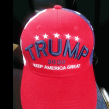
Trump makes unproven link between autism and Tylenol
BS Wildcats replied to thetragichippy's topic in Political Forum
And you’re a nurse. Lord help us -
No one is above the law!
-
 HarryDoyle reacted to a post in a topic:
Cushing (62) @ Evadale (44) - FINAL
HarryDoyle reacted to a post in a topic:
Cushing (62) @ Evadale (44) - FINAL
-
-
Baylor offered them both. Babin's the first 2027 commit for Vandy
-
LSU had Peyton Houston commit to them 2 weeks ago. Most schools only take one high profile QB. Like half of the top 30 QBs for 2027 have already committed.
-
wildly inappropriate what HD did. It feels like there should be some accountability for the administrators who ignored this and then protected their own. maybe there has been, I don't know.
-
That speaks loudly. Awesome post.
-
I read all of it. Makes me stop and think, which was the purpose of the article. Thanks for sharing.
-
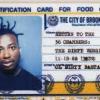
What Week 5 game(s) will you be attending?
BADSANTA replied to AggiesAreWe's topic in High School Football
Yates vs Worthing -
This was written by a high school friend, who graduated a year behind me, and posted on social media. As he states in the preamble, it’s lengthy but I found it worth the read. I also found it deeply relatable so I thought I would share it here for those trying to exist with the craziness going on all around us: “I know this is way too long for most of you to actually read, but for the few readers and thinkers in my orbit: I offer some (personal) thoughts on why political and cultural moderates like me are increasingly silent amidst all the violence and chaos that is rotting our great Republic. WHY I’VE STAYED SILENT ON ALL OF IT I used to imagine that someone in the political middle, someone aligned with neither of the extremes nor indifferent to public life, could speak up and help steady the discourse. I believed that moderation, reasonableness, and a willingness to hear the other side might have some purchase. But over time, watching how our public square has become not just loud but corrosively hostile, I’ve come to the conclusion that adding my voice now may well be pointless. I no longer speak if I cannot, or will not, be heard. The primary reason for my silence is simple: in this moment, the middle voice barely rises above the din. Every statement is swallowed by louder, more polarized voices peddling arrogant certainty, misplaced grievance, and unmitigated fury. When reasonable claims get drowned out by emotionally charged slogans, one is forced to ask: what is the gain in speaking at all? There is a bitter irony here: those who claim to defend “free speech” frequently turn on moderates who insist on nuance. The common tack taken by the most vocal on both sides is to invoke free-speech rhetoric only when it serves their side and may turn harshly on dissenters otherwise. The Harper’s Magazine editorial “Letter on Justice and Open Debate” (2020) warned that “[t]he intolerance of opposing views, a vogue for public shaming and ostracism, and the tendency to dissolve complex policy issues in a blinding moral certainty” now infects both sides. So, increasingly, moderate voices stay mute, partly out of self-defense: if your voice will only be used as a target, why volunteer it? There is a second, deeper reason that I remain silent. In extreme environments, reasoned argument loses traction. When people are primed by anger, fear, or identity-based tribalism, they respond not to evidence but to narrative, symbolism, and emotional resonance. If a moderate speaks in calm tones, they risk seeming weak or irrelevant. If they raise their voice, they risk being absorbed into the very hell they wished to escape. In that sense, the act of speaking may force us to adopt harsher tone, cruder frames, or safer alliances. But to do that, we sacrifice the very quality (temperance, nuance) that defines political moderation. And so I prefer silence to distortion, rejection, or complicity in the poison. There is a kind of tragic resonance here with Faulkner’s observation in The Sound and the Fury (via Quentin): “Because no battle is ever won … The field only reveals to man his own folly and despair, and victory is an illusion of philosophers and fools.” That line haunts me: it suggests that the spectacle of conflict lays bare our own weaknesses, not any grand moral certainty. Speaking in that field can feel like rehearsing a folly, repeating the despair. But my silence does not signify my apathy. Nor does it signify my complicity (though, admittedly, silence sometimes serves complicity). Rather, it is a recognition of my limits and the dangers I see in shallow participation. I still observe, read, and reflect. Sometimes I counsel others or intervene quietly. But I no longer assume that public utterance is the same as influence. As a moderate, I’ve come to feel that meaningful change, if it ever happens, will not come from the loud center but from the margins pushing morality, from trust reknit in communities, and from slow, patient civic repair. The public arena is too polluted, too weaponized, to welcome a voice of neither fury nor absolutism. Thomas Jefferson counseled, “Be a listener only, keep within yourself, and endeavor to establish with yourself the habit of silence, especially in politics.” He was not denying political engagement, but warning that the constant clamor of politics can drown out inner reason. I take that advice seriously now. So here I remain, publicly silent, though not disengaged. I judge that when the cost of speech is loss of integrity—or worse, being a caricature in someone else’s war—it is sometimes less damaging to the soul to stay quiet. I am not proud of this silencing. But it is what remains to someone in the middle who still wants to learn, to reflect, and to preserve some interior coherence. If ever the air clears, if reason again finds traction, I may speak. But until then, I wait.”
-
Not really. Silsbee did not play good.
-

Trump makes unproven link between autism and Tylenol
thetragichippy replied to thetragichippy's topic in Political Forum
omg......which was first, cigarettes or cancer? -
I would put some good money on that. I like the odds lcm doesn't cover 21 lol
-
Started good against silsbee too.
-
Lookout, you might be labeled a little crying puppy dog with those kind of "realistic" comments.
-
Hunter Brown is the sixth pitcher in Astros history to throw at least 185 innings in a season and finish with an ERA lower than 2.45. Roger Clemens was the last person to do it in 2005 -
-
Trump makes unproven link between autism and Tylenol
Reagan replied to thetragichippy's topic in Political Forum
I guess the media’s TDS is so bad they forgot about this. [Hidden Content]



